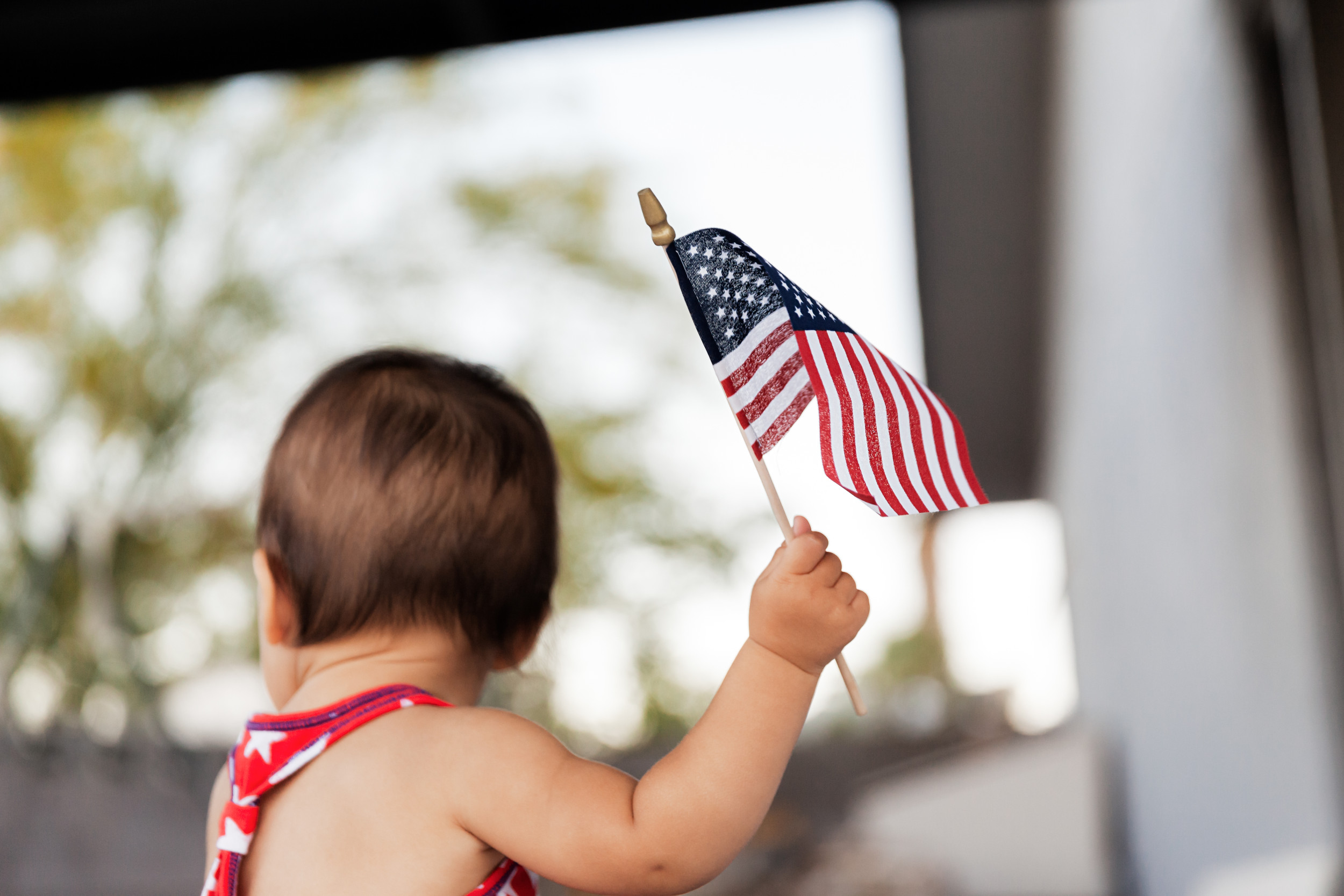Charts analyzing baby name preferences in conservative (red) and liberal (blue) U.S. states have gone viral.
Compiled by Nameberry using Social Security Administration data and 2020 presidential election results, the data is once again circulating social media, revealing clear trends in name popularity based on political geography.
The most “blue” names—those most common in states that voted Democratic—tend to have multicultural or international influences.
Eyesem Mobile Mobile GMBH
For girls, names like Fiona, Liana, Mira and Maryam dominate, with each being at least 74 percent more prevalent in blue states than red states. Many of these names reflect diverse backgrounds, with Miriam and Maryam having Hebrew and Arabic roots, respectively.
For boys, Moshe (97 percent prevalence in blue states), Muhammad (79 percent) and Yusuf (78 percent) rank among the “bluest” names.
Names like Kieran, Ari and Aidan also have strong representation, pointing to a preference for names with Irish, Hebrew or global appeal.
Names more popular in Republican-voting red states follow a different pattern, often reflecting traditional, Southern or Western influences.
For boys, Kohen, Baylor, Stetson and Kyson are among the “reddest” names, with at least 66 percent prevalence in conservative states.
For girls, Hattie, Oaklynn, Oakleigh and Gracelynn are leading “red” names, with prevalence exceeding 60 percent in conservative states.
The trend suggests a preference for vintage-sounding names (Hattie), modern invented names (Oaklynn and Wrenley) and Southern-style double names (Gracelynn).
The charts have sparked widespread discussions online, with some seeing the data as evidence of deep ideological divides, even in parenting decisions.
nameberry (baby name website) charted the reddest vs bluest baby names (meaning: highest disparity in red states vs blue states) and it extremely interesting data: pic.twitter.com/oOqvPoFiaQ
— owen cyclops (@owenbroadcast) March 25, 2025
An illustrator and artist who goes by the name @owenbroadcast posted the “extremely interesting data” on X, formerly Twitter, amassing 6.4 million views and over 13,000 comments.
“Parents please stop naming your kids after the blue boy names. Like trust me they’re gonna grow up and regret it. opt for a neutral name no like c’mon,” X user @jpphilipsss wrote.
X user @nashdelirium wrote, “Red vs blue is basically ‘is Cohen your first name or last name?”
Another X user, @jjainschigg, commented that baby names show no strong preferences beyond some unique choices influenced by trends like Irish mythology, possibly due to popular TV series in blue states.
“Red state names, meanwhile, are totally ‘neo’ – basically made up from whole cloth. They evoke all the predictable things: the pioneer spirit, violence, various takes on cowboy and country masculinity,” they wrote.
Many other users were surprised by the number of variations of the name Oakley that appear among the most conservative-leaning girl names.
“So many beautiful established tree and tree adjacent names for girls – Laurel, Daphne, Willow, Juniper, Magnolia, Waverly. Why all the oak-names??” one X user wrote.
Users across social media continued to weigh in. In a clip on TikTok, @hifortesa said she found the data fascinating.
“What I thought was interesting about this was none of these were super feminine which I guess kind of leans into the whole like conservative idea of like Maverick kind of like rebellion like cowboy kind of stuff, then we have the bluest boy names and these are really interesting because they seem to come from a lot of different cultures, so we have Santino, Muhammad, Yusuf, Kieran, Ari, Aidan, Ibrahim, Ali and Nico,” she said.
While baby names don’t determine political identity, these trends illustrate how cultural values influence even deeply personal choices.
